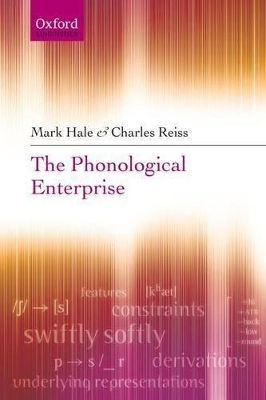
The Phonological Enterprise
Oxford University Press (Verlag)
978-0-19-953397-8 (ISBN)
This book scrutinizes recent work in phonological theory from the perspective of Chomskyan generative linguistics and argues that progress in the field depends on taking seriously the idea that phonology is best studied as a mental computational system derived from an innate base, phonological Universal Grammar. Two simple problems of phonological analysis provide a frame for a variety of topics throughout the book. The competence-performance distinction and markedness theory are both addressed in some detail, especially with reference to phonological acquisition. Several aspects of Optimality Theory, including the use of Output-Output Correspondence, functionalist argumentation and dependence on typological justification are critiqued. The authors draw on their expertise in historical linguistics to argue that diachronic evidence is often mis-used to bolster phonological arguments, and they present a vision of the proper use of such evidence. Issues of general interest for cognitive scientists, such as whether categories are discrete and whether mental computation is probabilistic are also addressed. The book ends with concrete proposals to guide future phonological research.
The breadth and depth of the discussion, ranging from details of current analyses to the philosophical underpinnings of linguistic science, is presented in a direct style with as little recourse to technical language as possible.
Mark Hale is Professor and Charles Reiss is Associate Professors of Linguistics at Concordia University, Montreal. Mark Hale is the author of Historical Linguistics: Theory and Method (Blackwell, 2007). His research interests include historical linguistics, especially the Oceanic and Indo-European families, phonological and syntactic theory and language acquisition. Charles Reiss is interested in phonology and general linguistics, and the place of linguistics in cognitive science. He is the co-editor with Gillian Ramchand of The Oxford Handbook of Linguistic Interfaces (OUP, 2007) and author, with Daniela Isac, of I-Language: An Introduction to Linguistics as Cognitive Science (OUP, forthcoming 2008).
1. Introduction ; PART I PHONOLOGICAL UG AND ACQUISITION ; 2. The Subset Principle in Phonology ; 3. Competence and Performance in Phonological Acquisition ; 4. The Georgian Problem Revisited ; PART II RESISTING SUBSTANCE ABUSE IN PHONOLOGY ; 5. Galilean-Style Phonology ; 6. Against Articulatory Grounding ; 7. Against Typological Grounding ; PART III SOME ASPECTS OF OPTIMALITY THEORY ; 8. Against Constraints ; 9. Against Output-Output Correspondence ; PART IV CONCLUSIONS ; 10. A Principled Solution to Catalan ; 11. Final Remarks ; References
| Erscheint lt. Verlag | 28.2.2008 |
|---|---|
| Zusatzinfo | Includes diagrams. |
| Verlagsort | Oxford |
| Sprache | englisch |
| Maße | 156 x 234 mm |
| Gewicht | 464 g |
| Themenwelt | Geisteswissenschaften ► Psychologie ► Verhaltenstherapie |
| Geisteswissenschaften ► Sprach- / Literaturwissenschaft ► Sprachwissenschaft | |
| ISBN-10 | 0-19-953397-0 / 0199533970 |
| ISBN-13 | 978-0-19-953397-8 / 9780199533978 |
| Zustand | Neuware |
| Haben Sie eine Frage zum Produkt? |
aus dem Bereich


